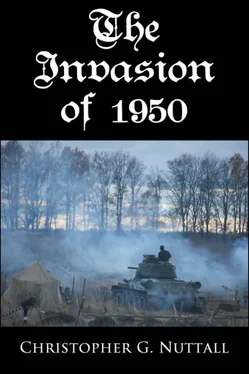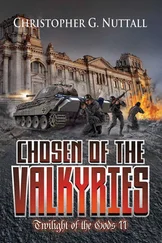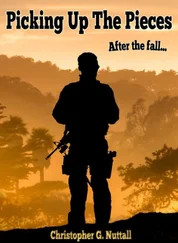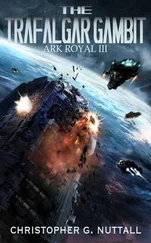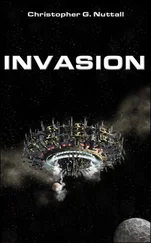“I am taking them into my custody,” Jackson said flatly. There was little point in arguing, especially because part of him shared the desire to just exterminate the Germans and be done with it. “How many others are there in the area?”
The bartender shrugged. He waved a hand at a sobbing girl, her hair shaved off and her dress torn and ripped, pulled tight around her to hide as much as possible. “You might as well have her too. She slept with the Germans and lorded it over everyone else.”
“Thank you,” Jackson said tightly. He had orders to prevent any kind of revenge attacks until the government sorted out who was actually to blame and who had been placed in a position where they had no choice but to collaborate. “If there are any other collaborators around, you are to place them into my custody as well.”
The innkeeper stared at him. “But sir…”
“Don’t argue,” Jackson stated grimly, seeing the face of post-war Britain in his mind’s eye. It wasn’t going to be a pleasant place to live. “I want you to see to it personally, and not a one of them is to be harmed until they have a fair trial, understand?”
The innkeeper shuffled off, and Jackson devoted himself and his soldiers to securing and counting the prisoners before herding them out of town towards one of their former detention camps. The innkeeper and his men returned with some unwilling captives, mainly young women, although he had clearly taken Jackson’s words to heart. Only one of them had had her head shaved.
Jackson shook his head slowly. The invasion might have been defeated, but the scars would remain for a very long time. Families would be torn apart, communities would wage war on one another, feuds would be nurtured for years to come. Was such a country really worth fighting for? He imagined their possible future and saw nothing, but darkness.
* * *
Although there had been hundreds of acts of resistance in the final few days of the German offensive, it still surprised Gregory Davall to see how many people had come out of the woodwork claiming to have been insurgents all along. Janine — her role unknown to all but the Grey Wolves — had narrowly escaped having her hair shaved off, and since then, an armed Grey Wolf had remained with her at all times. Davall wouldn’t hesitate to shoot one of his former townspeople. Their gratitude was severely lacking, even though he had lost his wife as well.
“She was a magnificent woman,” he said to Janine as they stood together in front of the mass grave. The Germans had dumped all the bodies into the same grave. The townspeople were promised that the grave would be dug up and the civilians buried in a proper grave, but Davall wasn’t too keen on the idea. Kate would never have forgiven him for allowing her body to be disturbed after she was buried. “She deserved better.”
“I know,” Janine said. Her scars hadn’t healed much in the time between Stahl’s death and the liberation of Felixstowe, but dressed properly for once, it was much harder to tell that she had been hurt. Her appearance always made Davall smile. He’d seen her without clothes, in circumstances that should have embarrassed both of them, but now she looked more attractive than undressed. “What are you going to do now?”
Davall smiled sadly. “I’m not going to stay here,” he said after a long moment. “There are too many people who blame me, us, for the deaths of their wives, and they will be taking it out on us after a few days. I can’t gainsay them. Perhaps, if I had surrendered, it would have been easier for us.”
His voice broke off.
“I’m going to take James and go north,” he said after a moment. He didn’t miss the brief expression on her face. “Do you want to come with me?”
Janine reached out and gave him a hug.
“There’s nothing for me here either,” she said. “If you’ll allow me to come with you, then I will be happy to follow you anywhere.”
Davall kissed her and led her back towards the village green. Churchill was supposed to speak to the townspeople. He was the first of an endless stream of government ministers who would be coming to tell them how sorry they were that the townspeople had been put through hell and that it wouldn’t happen again. Particularly if the townspeople voted them in again. Davall suspected that there would be a few changes to the country in the next few years. There were hundreds of thousands of people with guns now, and the determination to use them. The next trade union dispute might get very interesting.
“Or maybe I’ll go into politics,” Davall mused as they reached the village green. The MP for the area had been in London during the occupation and had been strongly condemned for remaining there, rather than sharing the trials and tribulations of his people. Davall’s fighting credentials were first-rate. “What do you think of that?”
Janine considered it.
“I don’t know,” she said finally. “What’s wrong with earning an honest living?”
* * *
Winston Churchill insisted on visiting the liberated area as quickly as possible, despite the unified opposition of Monty, Alexander and Alex DeRiemer himself. A company of soldiers had been devoted to his protection as he was driven along battered roads, passing British soldiers mopping up after the fighting had died down. They finally drove into Felixstowe as darkness fell. The streets were still brightly lit. A street party was going on that rivalled anything that DeRiemer had seen since the end of the last war, but then that had been a messy and inconclusive ending to the fighting. The British Empire might not have defeated the Nazi beast and killed it in its lair, but it was a clear and very conclusive victory. The invasion of Britain was over.
DeRiemer smiled as he took in the crowds. It was a strange mixture, from British servicemen to other Commonwealth soldiers, Canadians, Australians, Indians… all blending together into one strange mass. Three different bands were playing three different tunes, all trying to drown each other out and drag as many dancers as possible into the dance, while the inns had thrown themselves open and were pouring free beer into the hands of anyone who cared to take it. The soldiers, at least, were fairly disciplined. The townspeople, liberated from the Nazi shackles, danced and sang as if there were no tomorrow.
Churchill loved it. He was down off his stand and mixing with the crowd before DeRiemer, or any of his bodyguards, knew what was happening. Everyone wanted to shake his hand, to assure him that they wanted no one else as Prime Minister or to encourage him to join in the dance despite his advanced age. It was growing darker and darker, but the lights kept the town awake despite the blackout order. DeRiemer silently prayed that the Germans wouldn’t launch a spiteful attack on Felixstowe, just to pay off some of their hard feelings. He wouldn’t have put it past them.
“This is impressive,” Truman said from his position in the car. The American Ambassador had insisted on coming as well, and Churchill hadn’t forbidden it. Indeed, Churchill had been delighted to have a chance to show his friend what free people could do. The war was far from over, after all, and American help would still be vital in winning the next round. “There will be celebrations in America as well.”
“This was a battle,” DeRiemer said tersely. He thought cold thoughts about Project Omega and wondered grimly if the Germans had such a project. The Americans had been tight-lipped about their own progress. Who knew where they stood with such weapons? “We have not yet won the war.”
Churchill finally mounted the stand, and something reassembling quiet fell. “We have won a great victory,” he said, his voice echoing out over the village green. “We have defeated a German army on our own soil through the courage of our fighting men and the determination of our population to never bow the knee to Adolph Hitler and his Huns! We have fought and won the first of many battles of this war.”
Читать дальше
